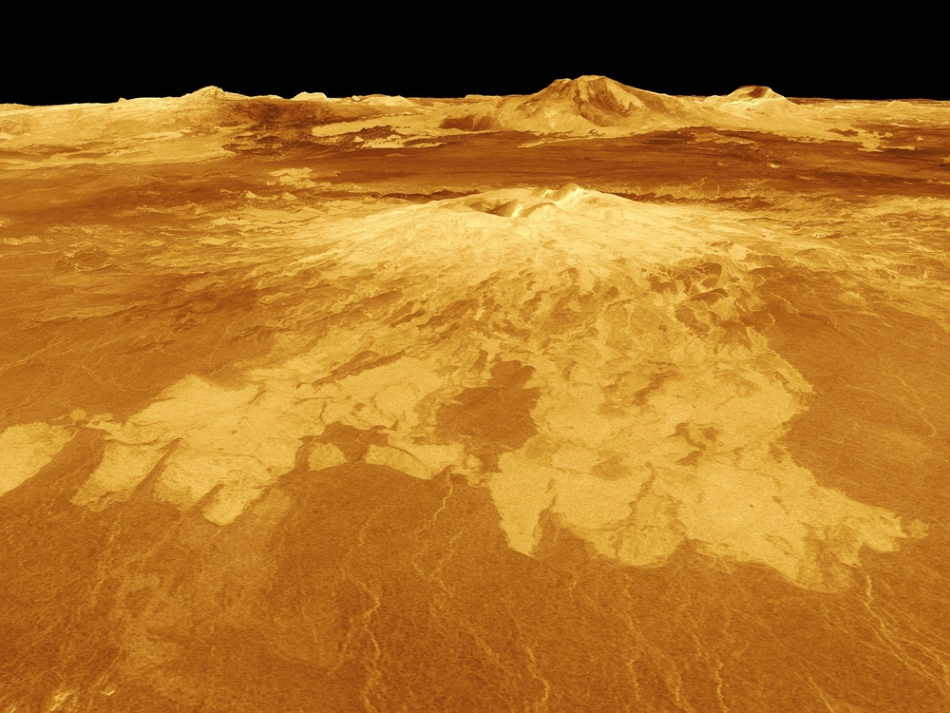
Image Credit: Everett Historical/Shutterstock.com
Until scientists at the Universities Space Research Association (USRA) published their findings in Science Advances at the beginning of the new year, the Earth had been the only planet known to have active volcanoes. The team at USRA demonstrated that the lava flows on the surface of Venus may just be a few years old, providing strong evidence that the Earth is not alone in its volcanic activity.
The significance of finding signs of active valances on Venus is that it would provide a valuable source of information on the interiors of planets. The team’s lead researcher, Dr. Justin Filiberto, suggests that studying Venus’s volcanic activity could lead to important conclusions being drawn about our planet, and others. It could help scientists understand key activities, such as how planets cool, and even why active volcanism exists on Earth and Venus and not on other planets, such as on Mars, for example. The success of USRA’s mission will lead to future studies that will seek to gain conclusive evidence on the active status of Venus’s volcanoes.
Developing a method to study Venus’s lava in the lab
Back in the 90s, NASA’s Magellan spacecraft transmitted images that showed widespread lava flows on the surface of Venus, which suggests that there may be a vast number of potentially active volcanoes on the planet. The next decade saw the Venus Express orbiter of the European Space Agency (ESA) collect infrared data from these lava flows, revealing that some of them were recent, however, with the technology available, it was difficult to determine how recent they were.
Filiberto’s team created an experiment that allowed them to recreate the conditions on Venus to allow them to understand how minerals change and react over time, giving the team a way to understand just how old the lava flows on Venus are likely to be.
They took the information they had on the atmosphere of Venus and recreated it in a lab. They then observed how certain minerals behaved over time. The study showed that basalt, a mineral that is prevalent on Venus, reacts very fast under Venus’s atmospheric conditions. The experiment revealed that in just a few weeks, magnetite and hematite coat basalt, which helped them to identify lava flows that had been imaged by the Venus Express in the 00s that were very young. Therefore, the data implied that due to the recency of the lava flows, Venus is probably home to active volcanoes.
Future studies will help us understand more about Earth
While the conditions on Venus do not allow for human exploration of the planet, with temperatures reaching over 800 degrees Fahrenheit, due to its proximity to the sun, scientists will continue to study these lava flows at a distance.
Future studies are planned to explore other volcanic materials, which should help to confirm the existence of active volcanoes. Further to this, more studies will likely take place that will help answer questions about Venus and about planetary behavior in general, such as how cooling takes place. Results from these prospective studies will undoubtedly help us gain a deeper understanding of our planet.
Disclaimer: The views expressed here are those of the author expressed in their private capacity and do not necessarily represent the views of AZoM.com Limited T/A AZoNetwork the owner and operator of this website. This disclaimer forms part of the Terms and conditions of use of this website.